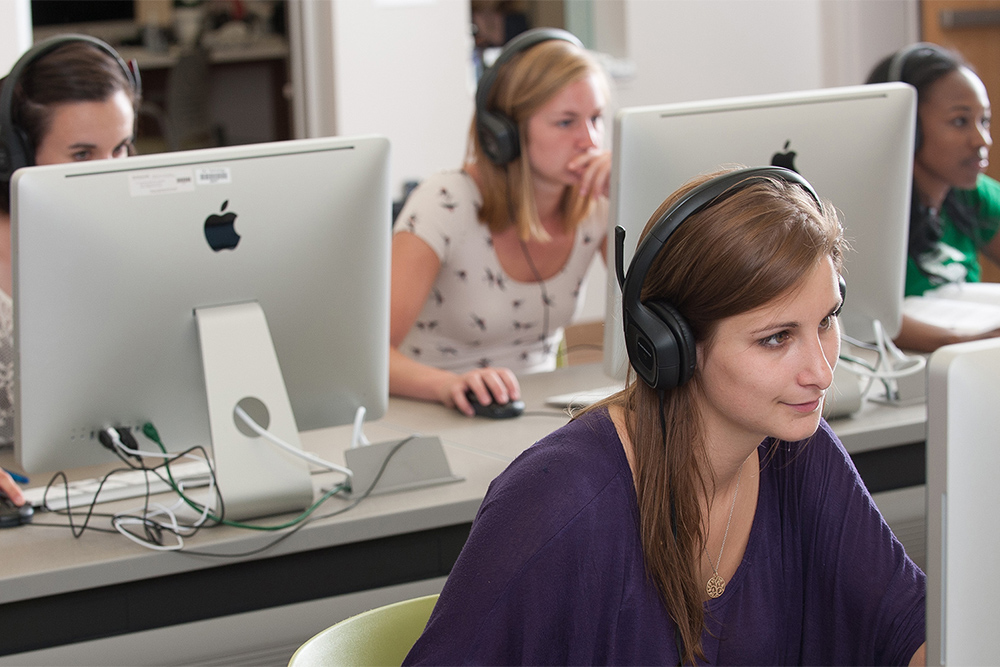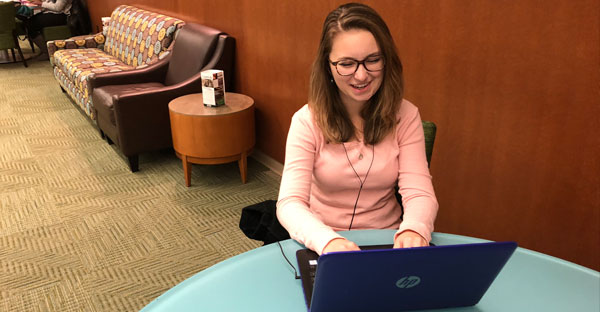
Crossing both cultural and language barriers, two MSU Arabic classes are gaining true conversational experience through the creation of an Arabic language conversation program that pairs students with Arabic-speaking refugees from Syria.
Each student in the ARB 201 and 401 classes taught by Assistant Professors of Arabic Camelia Suleiman and Cheng-Wei Lin was set up with a Skype account to communicate with the Syrian refugee they were partnered with. The students were responsible for skyping with them at least seven times during the semester as a way to improve their vocabulary, grammar, and accent.
Two senior Arabic students, Madison Lovasz and Feeha Hasan, were placed in charge of organizing the program and communicating with students about its progress.
“It’s really beneficial to talk to a native speaker instead of someone who just speaks Arabic and is living in the United States because they’re more familiar with the culture, the language, the traditions, the beliefs, and everything that they do in the country,” Hasan said.

Practicing with native speakers gives the Arabic students an opportunity to use and improve their comprehension and speaking skills, particularly when it comes to new dialects.
“My tutor and I are speaking in a Syrian dialect,” Lovasz said. “When you learn a dialect, it opens up the possibility to connect with more people. Understanding a dialect is understanding that region and being able to reach out to communities better.”
To prepare the students for their conversation with the Syrian refugees, a staff member from MSU’s Refugee Development Center (RDC) trained students on how to speak with their tutors.
“It’s amazing speaking with refugees, but we also need to be very careful with what we say and the questions we ask, because some things might have another implicit meaning that we don’t intend,” Lovasz said. “We learned to ask them about themselves as a person instead of about their past. Once they get comfortable, if they want to talk about their situation more, they are more than welcome to.”
In addition to learning about interactions with refugees, the skype conversations demonstrate the importance of the Arabic language in the modern world.
“This language is all over the world, and when you understand language, you can understand how someone thinks, which leads to understanding their culture as well.”
“This language is all over the world, and when you understand language, you can understand how someone thinks, which leads to understanding their culture as well,” Lovasz said. “Especially with the political climate that we’re in and the incorrect negative connotation the Arabic language sometimes has, learning it is the best way to empower a greater image of the culture that we’re learning about.”
As student leaders, Lovasz and Hasan are responsible for ensuring that each student benefits from the conversation process.
“I hope their speaking skills improve and that they get a sense of awareness when speaking with refugees,” Hasan said. “I’m also hoping that other students will get encouragement out of this experience. Arabic is not an easy language, but having that encouragement outside of class to keep studying, keep pushing through, keep trying to learn the language…it’s very helpful.”


